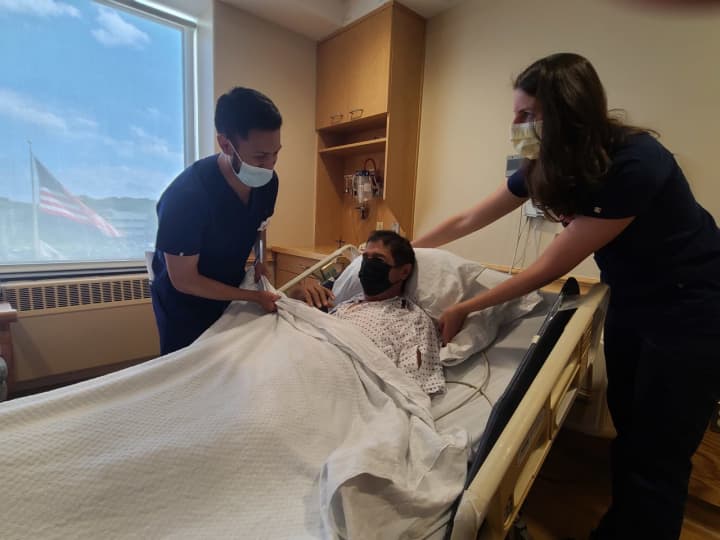- F – Face drooping
- A – Arm weakness
- S – Speech difficulty
- T – Time to call 9-1-1
When it comes to a stroke, how fast you are treated is critical. As one of the only hospitals in the area that is a gold-level certified stroke center, St. John’s Riverside Hospital has made substantial investments to be ready for you or your family member, with an award-winning stroke team.
Access to multi-board-certified doctors, C.T. and brain scans, and Tissue Plasminogen Activator is critical and available. If you talk with someone who suddenly begins to behave unusually, acting F.A.S.T. could help save their life. Specific, sudden changes in behavior may be signs of a stroke. This quick tool from the American Stroke Association can help you identify a stroke in yourself or another person.
If you notice the symptoms, dial 9-1-1 immediately and ask that the person be taken to our Emergency Department. Treating a stroke is a race against time to save brain tissue and potentially the stroke victim’s life. It is better to seek treatment and find out that it is not a stroke than to “wait and see” and possibly risk brain damage or death.
Getting treatment within the first three hours after stroke onset is critical for minimizing permanent damage. That is why it is so important to act FAST. Don’t wait. Dial 9-1-1.
*American Stroke Association Developed


